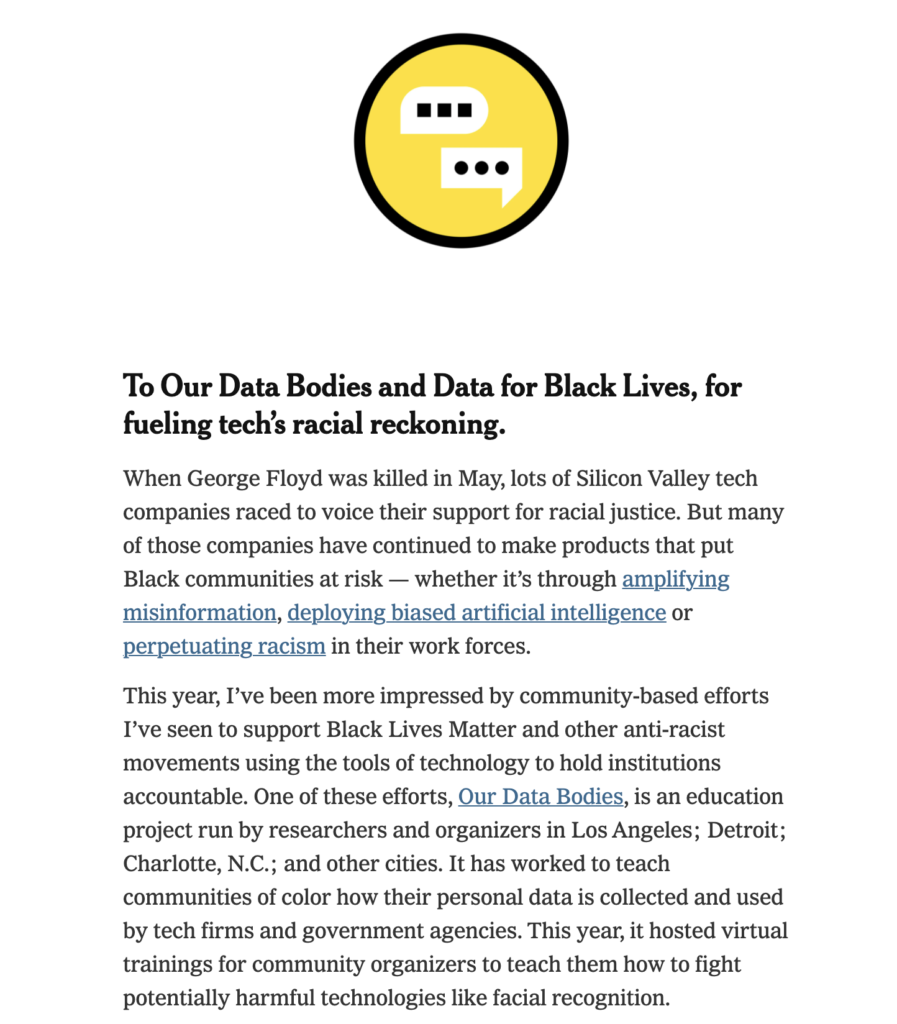ODB in the New York Times
At the end of 2020, Our Data Bodies was featured in The New York Times for their annual Good Tech Awards.
The Good Tech Awards profile technology efforts that make an important impact in their respective fields from racial justice to food and wellness to COVID-19 responses. ODB received mention for our work on facial recognition technology and our workshops and trainings on resistance strategies to racist, colonial technologies. These trainings and workshops function as spaces where we can connect with others, map our collective experiences, and exchange resources for building community power.
The core of our activity has always focused on knowledge creation and knowledge-sharing tactics for and with people who understand and experience discriminatory tech systems. In the first five years of ODB, we heard from Charlotteans, Detroiters, and Angelinxs who spoke first hand about what it means to divulge intimate details about health, family trauma, employment, and more to housing authorities, for example. They taught us the value of storytelling in creating nuanced, intimate and powerful resistance strategies. This year, ODB launched Oral Histories of Surveillance, a collection of stories from organizers, writers, and cultural workers who have resisted discriminatory technologies of power. This series allows us to continue to create blueprints for reimagining our communities relationship to tech and to navigate paths to disengage or disable harmful systems in our lives.
ODB is excited and honored to be mentioned alongside Data for Black Lives, which The Times also recognized. As noted in the profile, D4BL tracked the number of COVID-19 cases of Black people across the US with an interactive map that makes it impossible to dispute the disparate and devastating impact of the pandemic on Black communities.
The Good Tech Award serves an opportunity to thank those who have nurtured and uplifted our work. We remain rooted in community, anti-extraction processes and methodologies, imagination, dignity, and abolition, and we will continue to center those whose stories and lives have been shaped by coloniality and are destined for much more.


